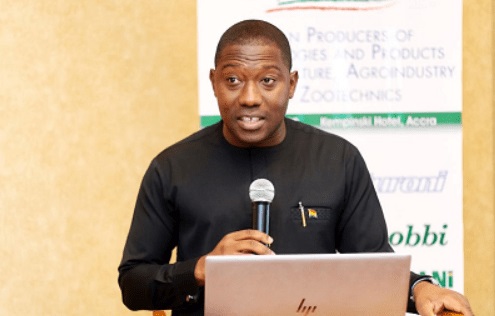The government is capitalising on the global energy transition to redefine its economic strategy with a special focus on value addition and manufacturing.
This shift will not only create much-needed jobs but also boost export revenues and ensure sustainable prosperity for all Ghanaians.
Speaking at the closing of the Ghana Industrial Summit and Exhibition in Accra last Thursday, the Minister of State at the Ministry of Energy, Herbert Krapa, said there was a need to address key challenges such as limited technological capacities, inadequate slow labour, high input cost, energy deficits, low productivity and weak capital markets.
"Ignoring these issues could undermine our progress. We need robust cross-cultural policy and regulatory reforms as well as fiscal market development to achieve sustainable consumption and production at all levels," the minister said in a speech read on his behalf by the Chief Executive Officer of the Petroleum Commission, Egbert Faibille Jr.
The summit
On the theme; "Promoting value chains for competitive industrial development", the three-day summit brought together industry leaders, policymakers and experts to promote the value chain for competitive industrial development.
The summit featured several panel discussions on strengthening value chains to boost industrial competitiveness; developing the automotive, textiles and pharmaceutical value chains; and promoting industrial development.
It is organised by the Association of Ghana Industries (AGI) in partnership with the Volta River Authority (VRA) and other collaborators.
Revolution
The minister said the African Continental Free Trade Area (AfCFTA) represents the world's largest free trade zone by participant countries.
“It creates a market of over 1.3 billion people across 55 nations with a combined gross domestic product (GDP) of approximately $4 trillion; the significance of AfCFTA headquartered in Accra could not be overstated.
He added that the $562 billion national energy transition framework outlined the best parts for fuel supply security, diversified energy mix, and cost-efficient electricity generation.
Challenges
The Deputy Chief Executive of VRA, Edward Ekow Obeng-Kenzo, stated that the country's industrial sector stood at a crossroads, facing well-documented challenges including infrastructure deficits, high inflation and technological constraints.
He said these issues affected industry and the energy sector and hindered global competitiveness.
However, he said VRA saw beyond obstacles to opportunities.
“By tackling these challenges directly, we can unlock our industrial value chain's full potential through innovative solutions, collaborative efforts and efficient practices.
“Over the last 60 years, the Volta River Authority has been the heartbeat of industrial development in Ghana, our core business to provide reliable power is the catalyst that drives industry and it is inarguable that the availability of affordable, clean and efficient energy continuously supports economies and strengthen the entire value chain,” he said.
Nuclear power
The President of AGI, Dr Humphrey Ayim-Darke, underlined the need to incorporate nuclear power into the country's energy mix to decrease industrial power costs.
That, he said, would be a strategic move to not only make Ghanaian businesses more competitive but also alleviate the financial burden of high electricity costs which had become a major concern for industries.
